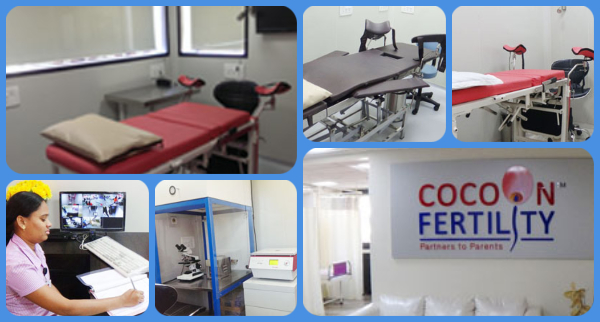What is ICSI?
Intra-cytoplasmic sperm injection (ICSI) has revolutionized the treatment of male factor infertility. It differs from conventional in vitro fertilisation (IVF) in that instead of mixing many sperm with an egg in a dish, the embryologist selects a single sperm and manually injects it directly into the egg to initiate fertilization.

ICSI is a highly specialized procedure and the success of ICSI depends upon the quality of laboratory equipment and skill and experience of the embryologist performing it. We have a high end embryology laboratory specially equipped with the latest high powered microscopes and micromanipulators. It is handled by our competent, dedicated, in-house embryologists with over 10 years of experience at ICSI who are available 365 days of the year.
Who can benefit from ICSI treatment?
Very low sperm count (oligozoospermia)
Poor sperm morphology (abnormal shape – teratozoospermia)
- Poor sperm motility (not moving normally – asthenozoospermia)
- Retrograde ejaculation (sperm is retrieved from the urine bladder)
During previous attempts at IVF there was failure of fertilization or an unexpectedly low fertilization rate
Some cases of unexplained Infertility
- In cases of absence of sperm in the ejaculate whether due to blockage in epididymis or otherwise, sperm can be obtained using specialized surgical techniques like TESA (testicular sperm aspiration), PESA (percutaneous epididymal sperm aspiration), Percutaneous biopsy of testis, MESA (microsurgical epididymal sperm aspiration) and TESE (testicular sperm extraction). The sperm so obtained can be used for ICSI. This allows men with fertility issues to father their own biological child/children without opting for a donor sperm.
- Frozen sperm which is not of optimum quality, is used for ICSI
- Eggs with a thick outer coat (zona)
What is the success rate of ICSI?
ICSI success rates are very similar to that of IVF. It is 40-45% per started cycle in women less than 35 years. About 85-90% of our patients conceive within three cycles. The success rate is higher in women under the age of 35 years. It reduces as age advances. Frozen embryo transfers after ICSI also have a similar success rate as those after IVF which is about 50-55%.
What is a typical ICSI process?
With the help of the micromanipulators, the egg is gently held in place with a specialized holding suction pipette. A delicate, sharp and hollow microinjection needle is used to immobilize and pick up a sperm. This needle which is carrying a sperm, is carefully inserted through the zona (shell of egg) and into the cytoplasm of the egg. The sperm is injected into the cytoplasm and the needle carefully removed.
In this way the sperm bypasses the barriers easily and fertilization usually follows.
Once fertilization occurs, all further steps are the same as in IVF.


